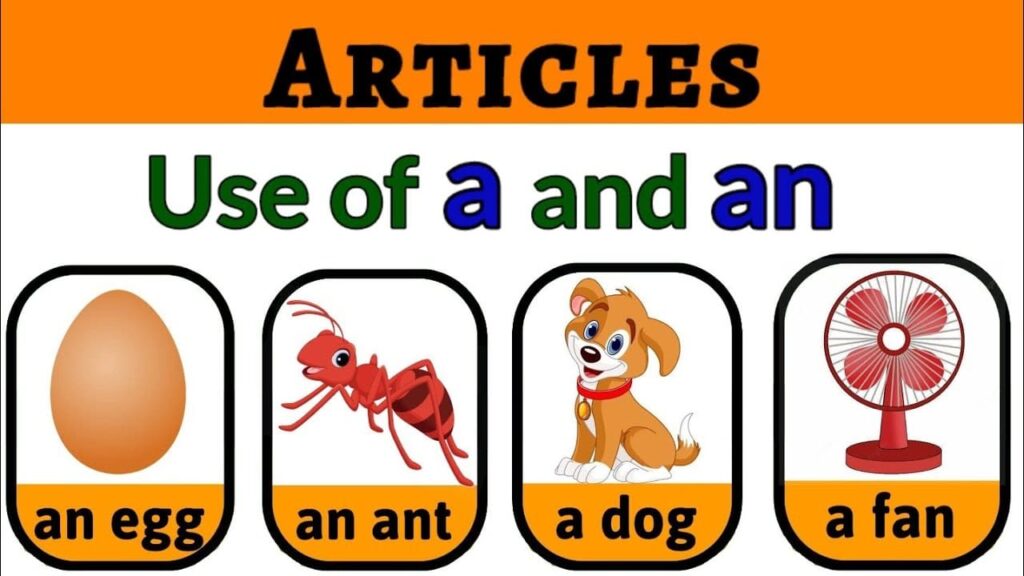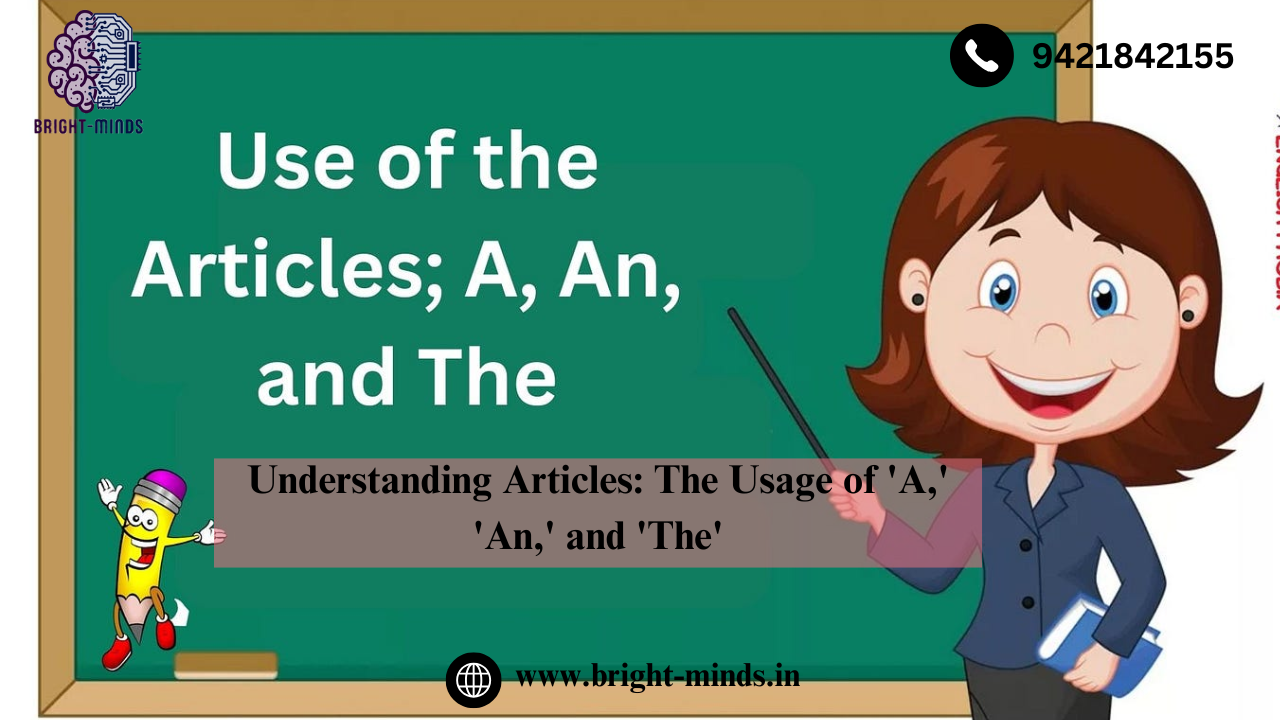Introduction
The unsung heroes of English grammar, articles are essential for communicating ideas clearly and precisely. These three tiny words—”a,” “an,” and “the”—have a big impact on a sentence’s specificity, generality, and grammar. Understanding articles is crucial to become proficient in the language, regardless of your background—student, professional, or English fan. The subtleties of articles, their usage guidelines, and helpful hints for doing so will all be covered in this blog.
1. What Are Articles?
Articles are words used to define nouns as specific or unspecific. They are a subset of determiners and fall into two categories:
a. Indefinite Articles (‘A’ and ‘An’)
Non-specific nouns are treated with indefinite articles. They suggest that any member of a group is referred to by the term.
Examples:
- A book, any book
- An apple, any apple
b. Definite Article (‘The’)
For certain nouns, the definite article is employed. It suggests that the term describes a specific group member.
Examples:
- The book (one particular book)
- The apple (one particular apple)
2. Rules for Using Indefinite Articles (‘A’ and ‘An’)

a. Use ‘A’ Before Words Starting with a Consonant Sound
Employ ‘A’ before words that begin with a consonant.
When a noun begins with a consonant, the letter “A” is used.
Examples:
- a car
- a university (Note: ‘University’ starts with a consonant sound ‘yu.’)
b. Use ‘An’ Before Words Starting with a Vowel Sound
‘An’ is used when the noun starts with a vowel sound.
Examples:
- an apple
- an hour (Note: ‘Hour’ starts with a vowel sound ‘ow.’)
c. Pay Attention to Acronyms and Abbreviations
The choice between ‘a’ and ‘an’ depends on the pronunciation of the acronym, not the first letter.
Examples:
- a UFO (‘U’ sounds like ‘you.’)
- an MBA (‘M’ sounds like ’em.’)
3. Rules for Using the Definite Article (‘The’)
a. Use ‘The’ for Specific Nouns
When the noun is specific or has already been mentioned, use ‘the.’
Examples:
- A dog caught my eye. The dog was letting out a loud bark.
- Paris is home to the Eiffel Tower.
b. Use ‘The’ for Unique Nouns
When referring to something that is distinct, use ‘the’.
Examples:
- the moon and the sun. Use ‘The’ for ordinals and superlatives.
- Ordinal numerals and superlative adjectives need “the.”
c. Use ‘The’ for Superlatives and Ordinals
Superlative adjectives and ordinal numbers require ‘the.’
Examples:
- the tallest structure in chapter
d. Use ‘The’ for Geographical Features
‘The’ is frequently used in specific geographical names
Examples:
- the Himalayas
- the Pacific Ocean
e. Use ‘The’ with Cultural and Institutional References
The phrase is used in reference to institutional or cultural entities.
Examples:
- The government and the library
4. When Not to Use Articles
a. With Plural and Uncountable Nouns in General Contexts
Articles are not utilized when discussing plural or uncountable nouns in general.
Examples:
- One source of knowledge is books.
- Life need water.
b. With Proper Nouns
Generally speaking, proper nouns such as names, cities, and nations do not need articles.
Examples:
- India is a stunning nation.
- Maria does a fantastic job at school.
5. Common Errors in Article Usage
a. Overusing ‘The’
“the” excessively might cause odd sentences.
Incorrect:
- She is going to the school every day.
Correct: - She is going to school every day.
b. Skipping ‘A’ or ‘An’
Omitting indefinite articles can lead to grammatical errors.
Incorrect:
- He is a physician.
- Yes, he works as a doctor.
c. Confusing ‘A’ and ‘An’
Using ‘a’ instead of ‘an’ before vowel sounds, and vice versa, is a common mistake.
Incorrect:
- I require an umbrella.
- Yes, I do require an umbrella.
6. Practical Tips for Mastering Articles
a. Read and Observe
To learn how “a,” “an,” and “the” are used in context, read novels, newspapers, and articles.
b. Practice Writing
To boost learning, write sentences using articles.
c. Use Visual Aids
Make flashcards or charts to help you recall article rules.
d. Solve Exercises
Take part in activities and tests to gauge your comprehension of articles.
7. Fun Activities to Teach Articles
a. Article Scavenger Hunt
Give pupils a passage and instruct them to locate all occurrences of the words “a,” “an,” and “the.”
b. Fill-in-the-Blanks
Make article-focused fill-in-the-blank exercises.
Example:
- In the zoo, I saw _ elephants.
c. Article Matching Game
Assign the appropriate articles to nouns.
Example:
- “_ apple” (Reply: An apple.)
8. Articles in Idiomatic Expressions
The use of articles is fixed in some idiomatic expressions.
Examples:
- Hastily
- At the hill’s summit
Conclusion
Gaining fluent in English requires mastering the articles “a,” “an,” and “the.” These words may appear insignificant, but they have the ability to define, clarify, and specify. Anyone may utilize articles confidently and accurately with regular practice, observation, and a firm grasp of the rules. Put these suggestions into practice right now, and you’ll see a significant improvement in your language abilities!
Also Read:
https://bright-minds.in/unlocking-word-meaning-for-class-ukg-english-to-hindi/

